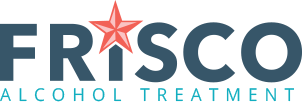Addiction Therapy Programs in Frisco, TX
The right combination of addiction therapy programs in Frisco can improve the chances of making a successful recovery from drug or alcohol addiction. Not everyone responds to the same treatments, so it's important that the right addiction therapy programs are tailored to suit each person's individual needs.
Therapy programs for addiction to drugs and alcohol are designed to teach recovering people new coping skills for relapse prevention in Frisco during the recovery process. Some aim to address the underlying psychological factors behind addictive behaviors. Others aim to teach effective ways to manage stress and reduce symptoms of anxiety associated with addiction recovery.
The key to choosing the correct combination of addiction therapy programs in Frisco is to assess each person individually and understand their unique needs. The first step in any comprehensive rehab treatment program is detox, which rids the body of the effects of the drug.
Therapy programs for addiction to drugs and alcohol then begin to address the triggers behind self-destructive behaviors. At the same time, addiction therapy programs begin to teach the recovering person new ways to cope with life without the need for drug or alcohol.
What is Addiction?
Addiction is a chronic relapsing disease characterized by compulsive drug or alcohol use. At first, a person may choose to voluntarily take drugs for recreational purposes, or to get high.
Over a period of time, that person's ability to control the amount they're taking becomes compromised. Eventually the person develops tolerance to the substance. They need to take higher doses to achieve the same effects that used to need much smaller amounts.
Taking any drug of addiction can cause changes within the brain's chemistry, triggering it to release abnormal amounts of hormones and neurotransmitters into the system. The brain interprets the artificial trigger of taking drugs as a false reward, which is recorded into long-term memory. Dual diagnosis treatment in Frisco manages the mental side effects of addiction that create a co-morbid mental illness.
When the person tries to stop taking the drug, the brain can't adapt to the lack of the substance. The result is that the person may experience unpleasant and even potentially life-threatening withdrawal symptoms. It's common for people struggling with addiction to continue taking more drugs in an effort to avoid the onset of nasty symptoms. At this point, the person is considered dependent on the substance, or addicted.
Types of Therapy Programs for Addiction Treatment
There are a number of structured addiction therapy programs in Frisco that incorporate cognitive behavioral therapy and individual counseling sessions to get to the root of addictive behaviors. However, rehab centers also integrate alternative or holistic therapies that teach recovering people new ways to cope with stress. Some commonly used alternative addiction therapy programs might include:
Art Therapy: Creative arts provide healthy outlets for unexpressed emotions and can be a great source of stress relief. Working through art therapy also helps to achieve a sense of achievement, which helps to build self-esteem and sustain motivation to complete projects. Commonly used forms of art therapy include writing, painting, drawing, sculpting, dance, and drama.
Restorative Yoga: Yoga uses specific poses and postures in combination with controlled breathing techniques to promote a sense of relaxation. Yoga is also known to reduce stress levels and relieve symptoms of anxiety and depression. Yoga is great for building core strength and toning muscles, which also helps to boost self-esteem.
Group Meetings: People struggling with addiction tend to isolate themselves, so attending group meetings regularly helps to reduce feelings of isolation at the same time as providing peer support. Group support meetings may include Alcoholics Anonymous (AA) or Narcotics Anonymous (NA) or other 12-step groups. SMART Recovery also offers group support options for self-motivated change, as well as access to online group sessions for those who need extra support outside of regular meeting hours.
There are various other types of alternative and holistic therapies that may also be used in drug rehab centers. Not everyone responds the same way to therapies, so every person is encouraged to experiment with various options until they discover the right combinations to suit their own personal needs.
The benefit to learning which therapies work best for each individual person is that they can continue to be used as a recovery tool even after leaving rehab. Call us now at (877) 804-1531.
